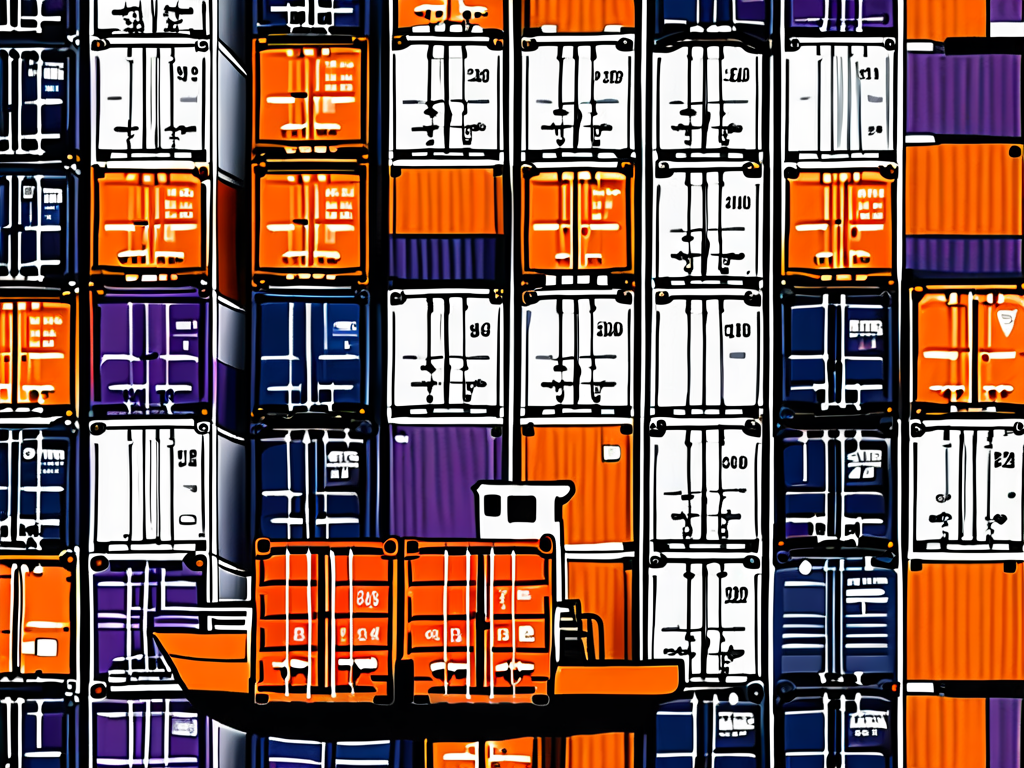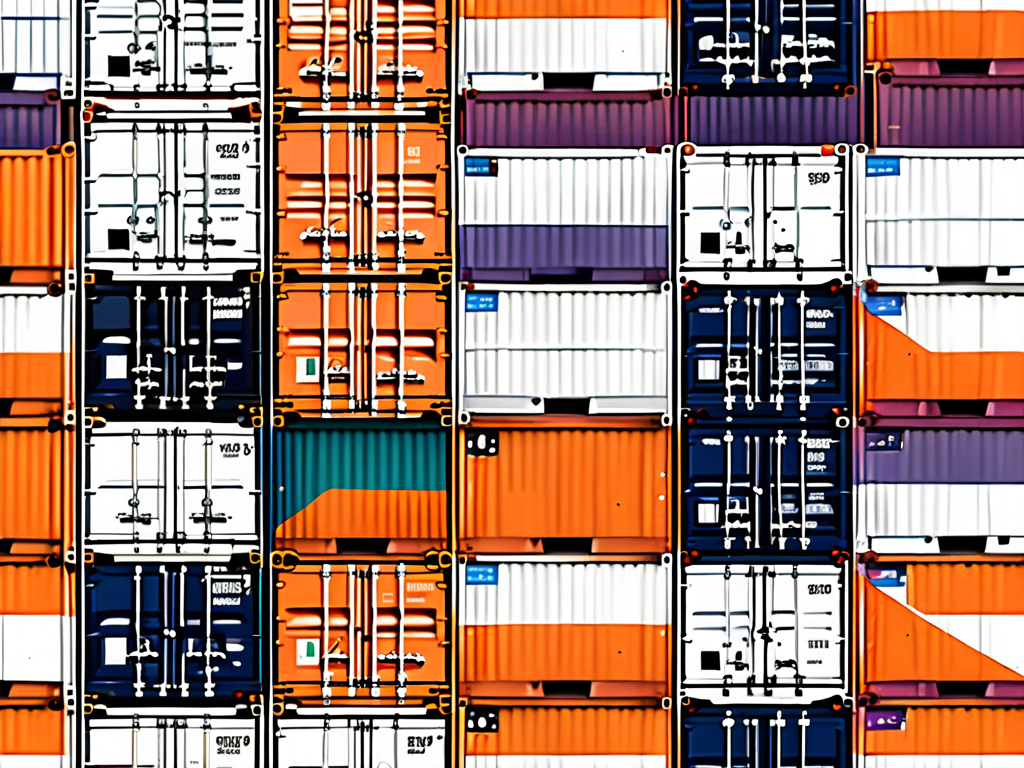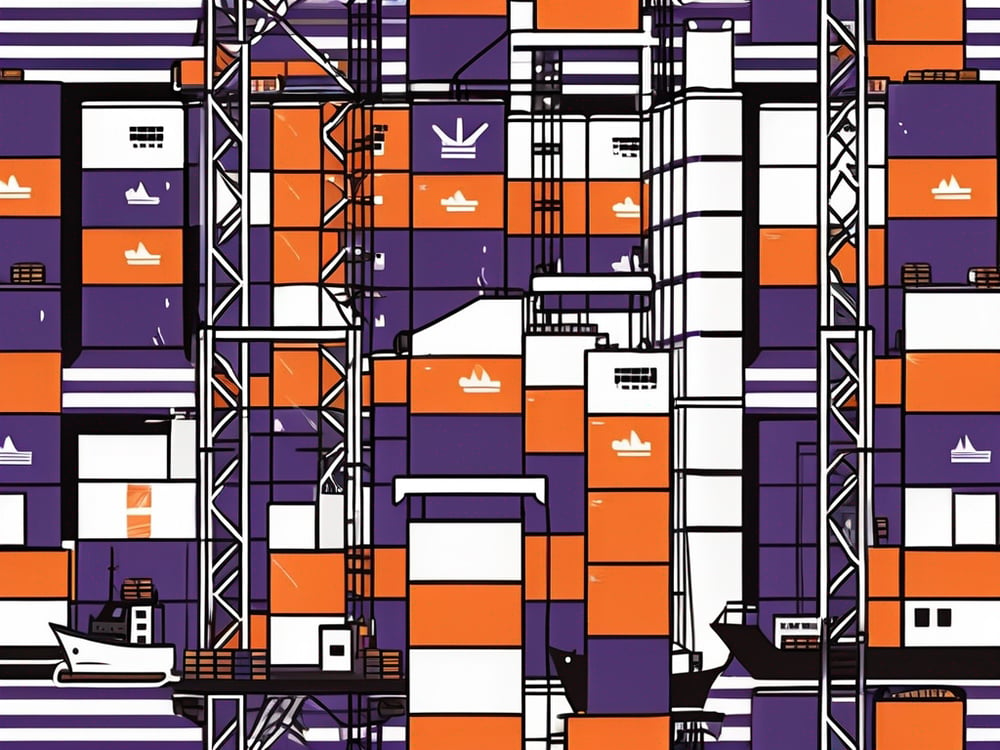Did you know that approximately 90% of all global trade is transported by ships?
That’s right, shipping plays a vital role in connecting countries and enabling the exchange of goods on a massive scale. But have you ever wondered what exactly is meant by the term ‘commodity’ in the shipping industry?
In this article, we will delve into the world of commodities in shipping, exploring their significance, classification, and impact on global trade. So let’s embark on this educational journey and unravel the mysteries of commodities in shipping!
Table of Contents
ToggleExplanation Of The Term ‘Commodity’ in Shipping
Before we dive into the nitty-gritty details, let’s start with the basics.
In the shipping industry, a commodity refers to any raw material or product that is traded internationally.
These can range from essential resources like oil, coal, and minerals to manufactured goods like cars, electronics, and clothing. For businesses dealing with high-volume shipments, leveraging 3PL services in the USA can streamline logistics, reduce costs, and improve overall supply chain efficiency.
Essentially, commodities are the lifeblood of global trade, fueling economic growth and driving international commerce.

The Basics of Commodity
Commodities in shipping are typically classified into two categories: bulk commodities and containerized commodities.
- Bulk commodities such as grains, coal, and oil require specialized shipping methods. Our bulk cargo shipping services ensure efficient and cost-effective transportation for large-volume shipments.
- On the other hand, containerized commodities are loaded and carried in standardized shipping containers, often consisting of manufactured goods and consumer products.
Different Types of Commodities in Shipping
Commodities can be further categorized based on their characteristics and specific markets.
Some of the commonly traded commodities include agricultural products (such as wheat, corn, and soybeans), energy resources (like crude oil and natural gas), metals (including copper, aluminum, and gold), and even unusual commodities like coffee, cocoa, and cotton.
Each type of commodity has its own unique qualities, supply-demand dynamics, and shipping requirements.
Let’s take a closer look at agricultural commodities.
- Wheat, for example, is one of the most widely traded commodities in the world. It is a staple food for many countries and plays a crucial role in global food security. The transportation of wheat involves careful handling and storage to maintain its quality and prevent spoilage.
- Corn, another agricultural commodity, is not only used for human consumption but also serves as animal feed and a raw material for various industries. The transportation of corn requires specialized equipment to ensure its safe and efficient delivery.
Now, let’s shift our focus to energy resources.
- Crude oil, often referred to as “black gold,” is one of the most valuable and heavily traded commodities in the world. It is the primary source of energy for transportation, heating, and electricity generation. The transportation of crude oil involves complex logistics, including the use of oil tankers and pipelines.
- Natural gas, another important energy resource, is primarily used for heating and electricity generation. It is transported through pipelines or as liquefied natural gas (LNG) in specialized tankers.
Metals, such as copper, aluminum, and gold, are also significant commodities in shipping.
- Copper, known for its excellent conductivity, is widely used in electrical wiring and plumbing.
- Aluminum, on the other hand, is lightweight and corrosion-resistant, making it ideal for various applications in the aerospace, automotive, and construction industries.
- Gold, often considered a safe-haven investment, is not only used in jewelry but also in electronics and dentistry.
The transportation of metals requires careful handling to prevent damage and ensure their quality upon arrival.
Unusual commodities in shipping
Coffee, a beloved beverage enjoyed bymillions around the world, is also a traded commodity. The transportation of coffee involves considerations such as temperature control and protection against moisture to preserve its flavor and aroma.
Cocoa, the key ingredient in chocolate, is another unique commodity. It requires specialized handling to maintain its quality and prevent contamination. Cotton, a natural fiber used in the textile industry, is also transported as a commodity. Its transportation involves careful packaging and protection against pests and moisture.
As you can see, commodities in shipping encompass a wide range of products, each with its own intricacies and requirements. Understanding the different types of commodities and their specific shipping needs is crucial for ensuring the smooth flow of global trade and the delivery of goods to consumers around the world.
The Role of Commodities in the Shipping Industry
Commodities hold a crucial position in the shipping industry, influencing various aspects of maritime trade. Let’s explore the significance of commodities and how they impact shipping operations and costs.

When delving into the realm of commodities within the shipping industry, one cannot overlook the intricate web of global supply chains that these goods traverse.
From the vast soybean fields of South America to the bustling manufacturing hubs of Asia, commodities embark on a journey that spans continents and oceans.
This interconnected network highlights the interdependence of economies worldwide, where the timely delivery of commodities is not just a matter of convenience but a strategic necessity.
The movement of commodities plays a crucial role in shaping e-commerce supply chains. Learn more in our article on how global trade impacts e-commerce fulfillment.
Importance of Commodities in Shipping
Commodities form the backbone of international trade, serving as vital inputs for industries across the globe. They are essential for manufacturing, energy production, and agriculture, among other sectors. Without the efficient transportation of commodities, many economies would struggle to function effectively.
The consistent flow of commodities through shipping channels ensures the availability of necessary resources and enables countries to meet their diverse needs.
Moreover, the role of commodities extends beyond mere economic transactions. They embody cultural significance, representing the unique identities and traditions of different regions.
For example, the rich aroma of Colombian coffee beans or the delicate texture of Indian spices encapsulates centuries of heritage and craftsmanship, adding a layer of depth to the commodities being transported across oceans.
How Commodities Influence Shipping Costs
Commodities have a significant impact on shipping costs due to their unique characteristics and transportation requirements. The bulk transport of commodities, such as grains or minerals, often involves specialized vessels that are designed to handle large quantities efficiently.
On the other hand, containerized commodities require the use of container ships, which offer secure and standardized transportation methods. The size, weight, perishability, and fragility of different commodities play a role in determining the shipping costs, as specialized handling and storage facilities may be required.
Furthermore, the volatility of commodity prices in the global market can directly affect shipping costs, creating a dynamic environment where industry players must adapt to fluctuating economic conditions.
The intricate relationship between commodities and shipping costs underscores the need for strategic planning and risk management to navigate the complexities of the maritime trade landscape.
Shipping costs vary depending on commodity type, transportation method, and global trade routes. If you need international freight forwarding solutions, working with a reliable logistics provider can optimize your shipping expenses.
Understanding Commodities in Shipping – Key Insights
In the realm of shipping, a thorough understanding of what constitutes a commodity is crucial for efficient and effective logistics management. Commodities, as standardized goods traded in bulk, play a pivotal role in global trade.
Knowing the classifications, regulations, and market dynamics associated with shipping commodities helps businesses navigate the complexities of international shipping, ensuring compliance and optimizing costs. Partnering with Fulfyld for 3PL fulfillment services can help streamline your logistics operations and enhance efficiency.
Whether you’re involved in shipping raw materials, agricultural products, or manufactured goods, having a clear grasp of commodity definitions and their implications in shipping enhances your strategic decision-making and operational efficiency. Embrace this knowledge to streamline your shipping processes and stay competitive in the global marketplace.






